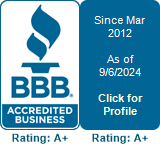Sometimes IRS Appeals are necessary. When you are grappling with an IRS problem you won't get much help from IRS employees. In most cases, you should be able to resolve your case with a lower-level IRS employee. But, in some cases (such as a denial of deductions) it may be necessary to file an Appeal within the IRS.
Audit Appeals
The procedure for appealing an IRS audit is different than the procedure for appealing IRS collections. For an audit, you don't actually need to appeal. If you do nothing at all, the IRS will send you a Notice of Deficiency. After you file a petition with the US Tax Court, your case will be assigned to an Appeals officer to try to resolve it prior to trial. So, you get an Appeal regardless.
OF course, you can file an Appeal after the IRS sends a "30-day letter" but prior to the Notice of Deficiency to secure your right to appeal. If you appeal and then later go to Tax Court, Appeals isn't available. You'll have to deal with the IRS attorneys directly.
Collection Appeals
For IRS collections, you can file a Collection Due Process Appeal if you feel you can't pay the tax or you believe that you don't owe it. All of these tactics are explored in greater detail in the "Collections" section of this website.
The problem with a Collection Due Process Appeal is that by filing the Appeal you agree to extend the statute of limitations for IRS collections. You should resist any extensions of the limitations period unless you have a very good chance to win against the IRS.
Conclusion
The office of IRS appeals is independent from the IRS but they must follow the law and the facts. If you can't provide any greater persuasive evidence or legal authority for your position, Appeals can't help you. So, it is usually best to try and resolve your case with the lower-level IRS employees if possible.






